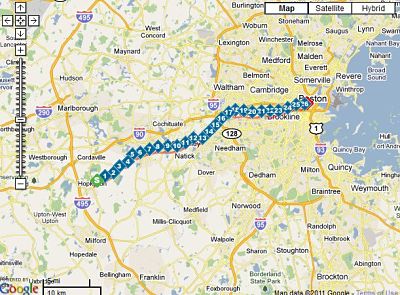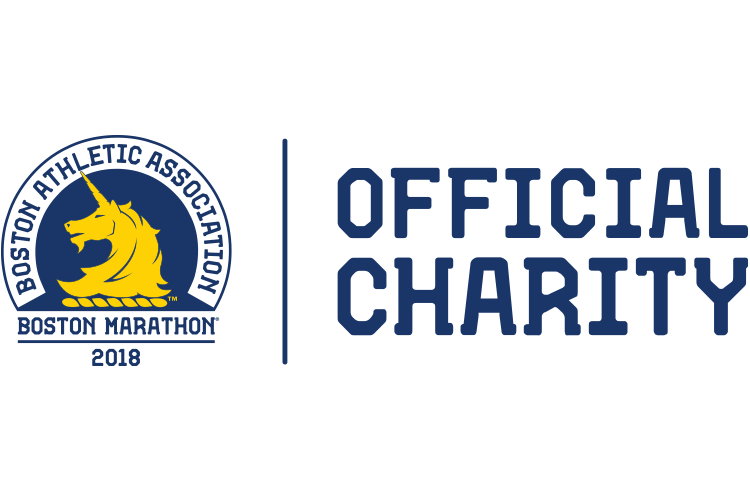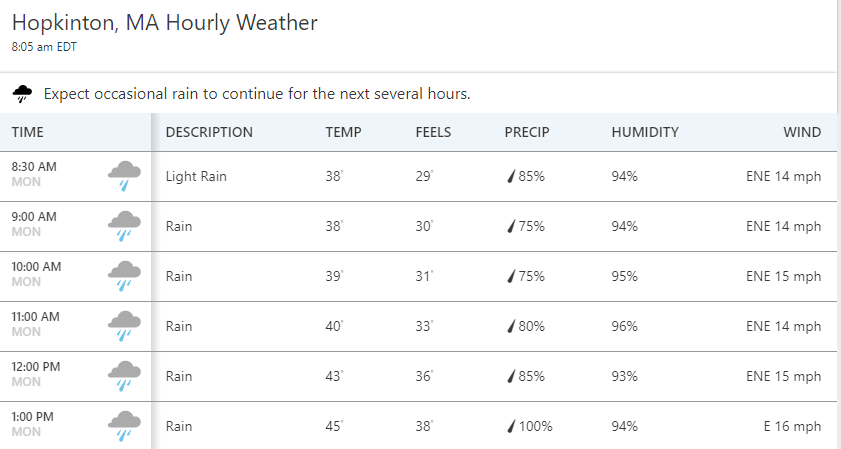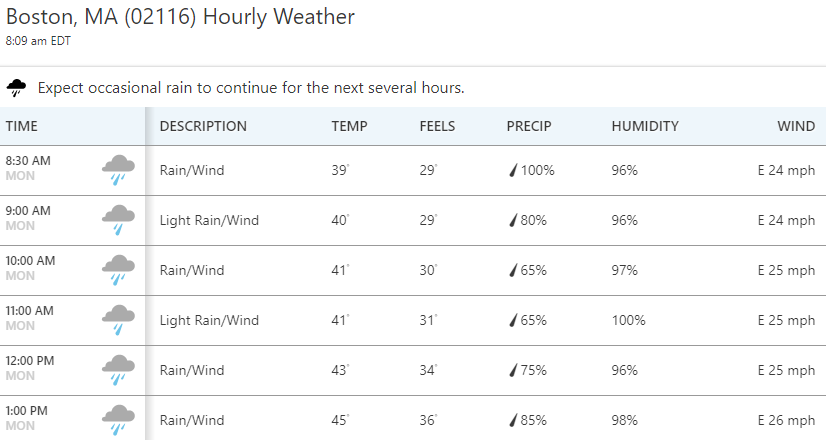The Boston Marathon Weather Is Going To Be Horrific — Don’t Be Surprised If You See The Slowest Winning Time in 30 Years
by LetsRun.com
April 15, 2018
BOSTON — The 122nd Boston Marathon will be held tomorrow and the forecast is for horrific conditions.
Temp / Feels Like / Rain Percentage / Humidity / Wind
It doesn’t get much worse than that for a runner — really cold rain and a huge headwind. Remember, the course runs from southwest to northeast (mainly from west to east) so it could end up being run pretty much into a direct headwind.
 Boston course map
Boston course map
In 2011, the forecast was pretty much the opposite — mild temps and a huge tailwind. Before that race, we called those conditions “once in a marathon lifetime” conditions in a good sense and LetsRun.com stat/coaching guru John Kellogg famously predicted that someone could very easily run faster than the world record at the time. That’s exactly what happened as the men’s race was won in 2:03:02.
With tomorrow’s race looking like the worst conditions for the marathon in at least a decade, we decided to reach out to Mr. Kellogg and see what effect he thought the weather would have on the race.
“It’s a little hard to predict as I’m not sure if it’s going to be a direct headwind or more of a crosswind and I’ve never run into wind like that for that long, but I do know running into a wind hurts you more than it would if you were being helped by a tailwind, in part because you are out there longer. A headwind hurts you a lot more than a tailwind helps you — probably 1.6 times as much,” said Kellogg. “So if it’s a direct headwind, I would be shocked if it wasn’t at least 7-8 minutes slower than just an average day out there (Editor’s note: By average day, he meant a temperature in the 50s with no wind). So I’m thinking it might be a 2:14-15 race and that’s assuming someone wants to run a pretty honest pace. Something tells me it might be slower than that,” said Kellogg before adding with a laugh, “Hell it could be 2:19 if no one wants to lead it.”
Kellogg said that one reason he came up with 7-8 minutes slower than average is because he figured the headwind, combined with the rain and cold temperatures “would probably hurt you twice as much as an ideal day with a big tailwind (like 2011) would help you (3-4 minutes was Kellogg’s prediction for 2011).”
We asked Mr. Kellogg if he’d bet his life if the forecast holds up if the winning time would be over 2:10. He said, “I don’t know if I’d bet my life but I’d certainly assume the race will be won in well over 2:10 — even 2:12 would surprise me,” said Kellogg, who added that even if it’s slow, he doesn’t think that will help the more track-based runners. “It’s almost like they are running a 50k so even though it’s going to be slow I still think it will come down to who is the best marathoner — not the best 10ker as it will effectively be a longer race.”
While two of the last six men’s winners have run in the 2:12s — Wesley Korir in 2:12:40 in 2012 and Lemi Berhanu Hayle in 2:12:45 in 2016 — there has only been one winning time slower than Hayle’s 2:12:45 in the prize money era, which started in 1986. That came in 2007, when Robert Kipkoech Cheruiyot won in 2:14:13 in conditions similar to what is forecast for tomorrow. Before that, you’d have to go back to Geoff Smith in 1985 (2:14:05) and Jerome Drayton in 1977 (2:14:46) for the last times the winner ran slower than 2:12:45. The year before Drayton was even slower, as Jack Fultz won the 1976 race (known as the “Run for the Hoses,” with temps reaching the low-90s) in 2:20:19. So if the race is won in slower than 2:14:13, it will be the slowest men’s winning time in more than 40 years.
On the women’s side, a winning time over 2:30 certainly is conceivable. Only twice since 1985 has the women’s winning time been over 2:30 — Salina Kosgei ran 2:32:16 to win in 2009, while Sharon Cherop won in 2:31:50 in 2012 when it was 87 degrees in Boston.
More: Talk about the Boston marathon weather on LetsRun.com’s world famous messageboard / fan forum:
- Official Boston Marathon Weather Discussion
- Boston has to be thinking about canceling on some level, right?
Complete 2018 Boston Marathon Coverage
We updated this article around 8:15 am ET on Monday. The original version of the article had the incorrect forecast listed for the race finish. We listed 9 pm to 1 am instead of 9 am to 1 pm ET.



